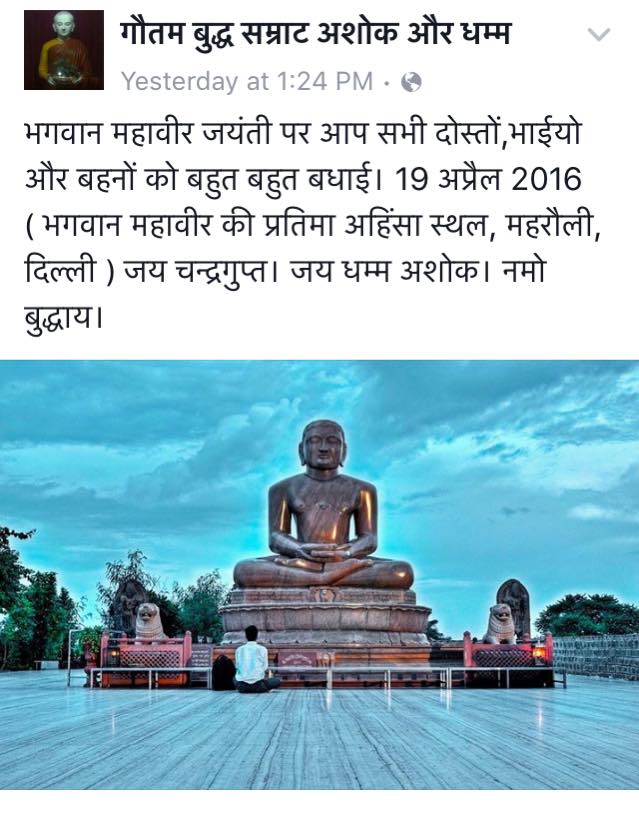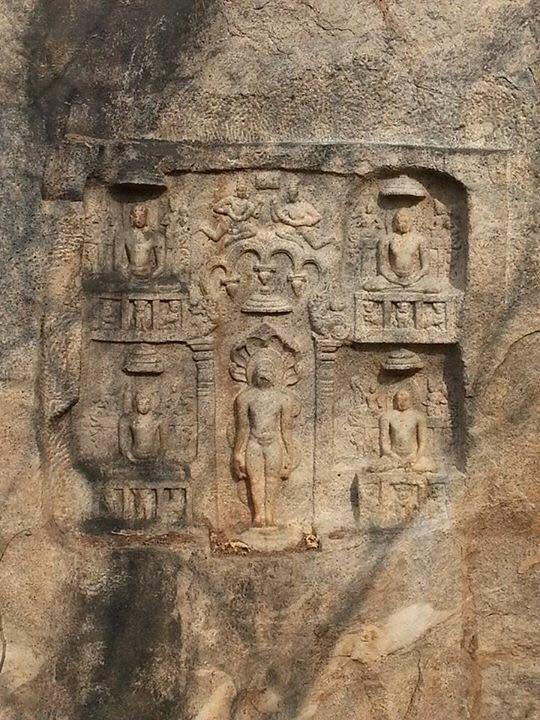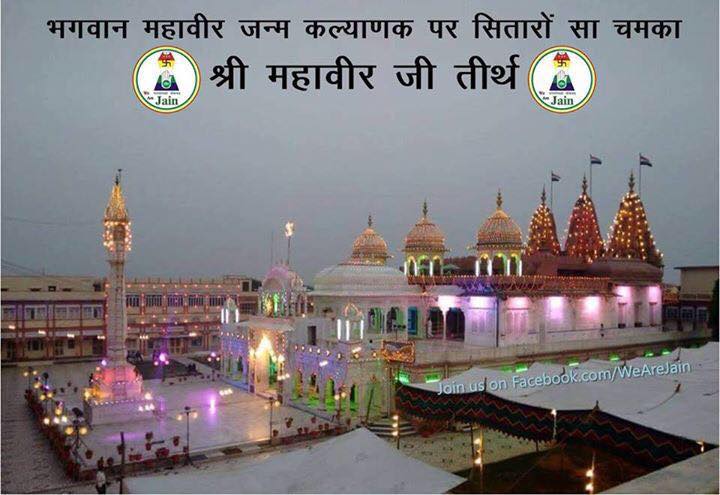Update
 Source: © Facebook
Source: © Facebook
मजहब नहीं सिखाता आपस में बैर रखना...:)) waow (Share karna to banta h..
Jain community being welcomed by Muslim community at Dargah Sharif to commemorate the 2615th birth anniversary of Bhagwan Mahavir.
 Source: © Facebook
Source: © Facebook
कुण्डलपुर के बडे बाबा तीन लोक के नाथ आदिनाथ भगवान के मस्तक पर १९ किलो चॉदी से निर्मित यह छत्र लगाने का सौभाग्य श्रीमान सुकुमार जी बिलासपुर (बांदरी) वालों को प्राप्त हुआ। यह छत्र शीघ्र ही आचार्य भगवन के सानिध्य मे लगाया जायेगा।
बड़े बाबा की जय हो
छोटे बाबा की जय हो
 Source: © Facebook
Source: © Facebook
Why the Sanatanies have not accepted the lord Mahavira the incarnation of Vishnu,as of Lord Buddha? #MahavirJayanti wishes shared across diversities:))
19.04.2016 Bagwan Mahaveer Jayanthi celebration at Vallimalai,Vellore dist., photos. Shravaks from Vellore Jain sangh, Arni Jain youth wing, and Ranipet attended pooja.
 Source: © Facebook
Source: © Facebook
 Source: © Facebook
Source: © Facebook
|| कुण्डलपुर (दमोह, म.प्र.) के मंदिर का भव्य दृश्य || #BfulKundalpur
 Source: © Facebook
Source: © Facebook
#Kundalpur #exclusive:) vartmaan ke vardhman
विद्यासागर नाम जपो सबकी बिगड़ी बन जायेंगी
जब भी देखो आचार्य भगवंत की मंद मंद मुस्कान
को तो ऐसा लगे जैसे महावीर स्वामी
साक्षात ही आचर्य भगवंत का रूप धारण कर
प्रकट हुए हो धरा पर लोग दूर दूर से आते है
जो भी लोग दुखी होते ह वो आचार्य भगवंत
की मंद मंद मुस्कान एवं वाणी सुन कर
अपने दुखो से छुटकारा पाते है और चिंतामणी
पाकर मन ही मन मुस्कुरा कर कहते है
अब ज़िन्दगी में कोई और चाह नही है
आचर्य भगवंत विद्यासागर जी को साक्षात
देख लिया तो हमे पंचम काल के महावीर को देख लिया ।
 Source: © Facebook
Source: © Facebook
✿ Lord Mahavir was the twenty-fourth and the last Tirthankara of the Jain religion. According to Jain philosophy, all Tirthankaras were born as human beings but they have attained a state of perfection or enlightenment through meditation and self realization. They are the Gods of Jains. Tirthankaras are also known as Arihants or Jinas.
Tirthankara - One who establishes the four fold order (Monk, Nun, Layman, and Laywoman) of religion.
Arihant - One who destroys his inner enemies like anger, greed, passion, ego, etc.
Jina - One who conquers his inner enemies like anger, greed, passion, ego, etc. The followers of Jina are known as Jains.
Mahavir was born in 599 B.C. as a prince in Bihar, India. At the age of 30, he left his family and royal household, gave up his worldly possessions, including clothing and become a monk.
He spent the next twelve years in deep silence and meditation to conquer his desires and feelings. He went without food for long periods. He carefully avoided harming or annoying other living beings including animals, birds, and plants. His ways of meditation, days of austerities, and mode of behavior furnish a beautiful example for monks and nuns in religious life. His spiritual pursuit lasted for twelve years. At the end he realized perfect perception, knowledge, power, and bliss. This realization is known as keval-jnana.
He spent the next thirty years travelling on bare feet around India preaching to the people the eternal truth he realized. He attracted people from all walks of life, rich and poor, kings and commoners, men and women, princes and priests, touchables and untouchables.
He organized his followers, into a four fold order, namely monk (Sadhu), nun (Sadhvi), layman (Shravak), and laywoman (Shravika). Later on they are known as Jains.
The ultimate objective of his teaching is how one can attain the total freedom from the cycle of birth, life, pain, misery, and death, and achieve the permanent blissful state of one's self. This is also known as liberation, nirvana, absolute freedom, or Moksha.
He explained that from eternity, every living being (soul) is in bondage of karmic atoms, that are accumulated by its own good or bad deeds. Under the influence of karma, the soul is habituated to seek pleasures in materialistic belongings and possessions. Which are the deep rooted causes of self-centered violent thoughts, deeds, anger, hatred, greed, and such other vices. These result in accumulating more karma.
He preached that right faith (samyak-darshana), right knowledge (samyak-jnana), and right conduct (samyak-charitra) together will help attain the liberation of one's self.
At the heart of right conduct for Jains lie the five great vows:
Nonviolence (Ahimsa) - not to cause harm to any living beings
Truthfulness (Satya) - to speak the harmless truth only
Non-stealing (Asteya) - not to take anything not properly given
Chastity (Brahmacharya) - not to indulge in sensual pleasure
Non-possession/Non-attachment (Aparigraha) - complete detachment from people, places, and material things.
Jains hold these vows at the center of their lives. The monks and nuns follow these vows strictly and totally, while the common people try to follow the vows as far as their life styles will permit.
At the age of 72 (527 B.C.), Lord Mahavir died and his purified soul left the body and achieved complete liberation. He became a Siddha, a pure consciousness, a liberated soul, living for ever in a state of complete bliss. On the night of his salvation, people celebrated the Festival of Lights (Dipavali) in his honor.
News in Hindi
 Source: © Facebook
Source: © Facebook
make it your whatsApp DP:) I did and You?
 Source: © Facebook
Source: © Facebook
Kids Learning -Good Habits:))
 Source: © Facebook
Source: © Facebook
The Bird asking 'please put some ice into pot to make it some drinkable, due to hot weather, water is so high temperature'
